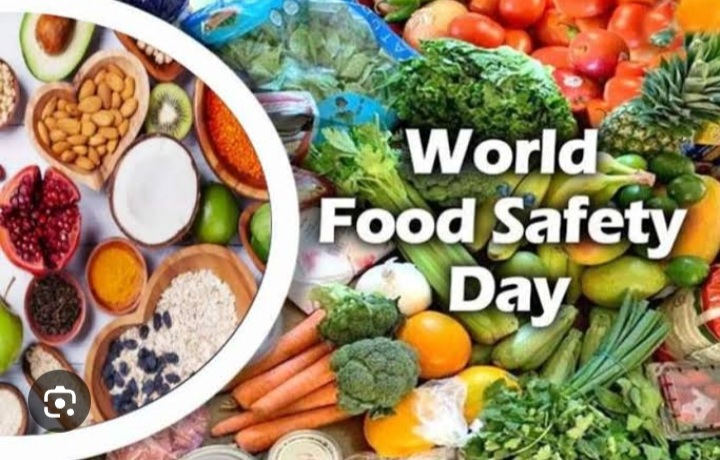World Food Safety Day: How healthy and safe are the foods on our tables

By Ojugbele Omotunde
The food we eat is very essential to our health and general wellbeing. Food plays a crucial role to our survival as humans.
Though some persons may go hungry or without food for days for several reasons, starvation can lead to death or severe illness.
Lack of adequate food and balanced diet can also lead to malnutrition. The United Nations as part of efforts to tackle food shortages and ensure food for all, established the world food day in 2014.
Since then, the primary objective of World Food Day has been to promote the idea of feeding the world and eliminating poverty in rural areas.
It is a global initiative by the United Nations General Assembly to raise awareness and encourage action to prevent, detect, and respond to public health threats linked to unsafe food.
Celebrated annually on June 7 and facilitated by WHO and FAO, the day raises awareness about safe food practices to prevent foodborne illnesses and ensure global well-being with the aim to contribute to food security, consumer health, economic prosperity, agriculture, market access, tourism, and sustainable development.
The theme of World Food Safety Day varies each year but consistently emphasizes the importance of safe food for all with this year’s theme being “Food safety: prepare for the unexpected.’
Over 1.6 million individuals globally become sick every day as a result of eating contaminated food with which approximately 40% of them are younger children, who are already more likely to die from contaminated food and suffer from malnutrition.
Reduced productivity and higher medical costs from foodborne infections are predicted to cause an annual loss of USD 110 billion in low- and middle-income nations.
WHO and FAO established the international network of national food safety bodies in 2004 in which every year, hundreds of food safety incidents are monitored and recorded by INFOSAN, the International Food Safety Authorities’ Network, which has 189 member countries.
For INFOSAN to respond to global emergencies involving food safety in a timely and efficient manner, member engagement is essential and risk management techniques have been effectively utilized to stop the spread of contaminated food through international cooperation during food safety disasters.
A vital component of public health is food safety, since contaminated food poses a number of health dangers, such as food poisoning and other foodborne illnesses.
Proper food handling, storage, preparation, and cooking methods are only a few of the steps involved in ensuring food safety which also includes keeping an eye on food supply chains, putting laws into place, and carrying out inspections to uphold strict guidelines for food safety.
Governments, food producers, and consumers are encouraged to work together to advance food safety procedures and increase public knowledge of the dangers of consuming contaminated food.
